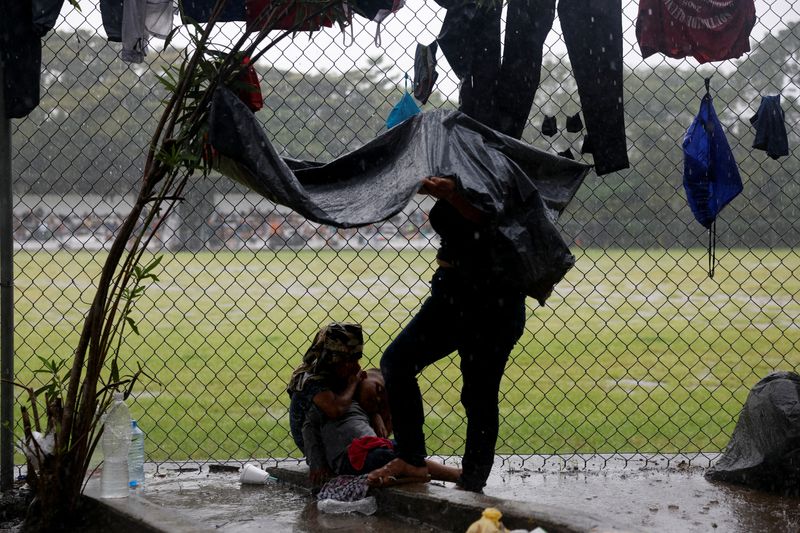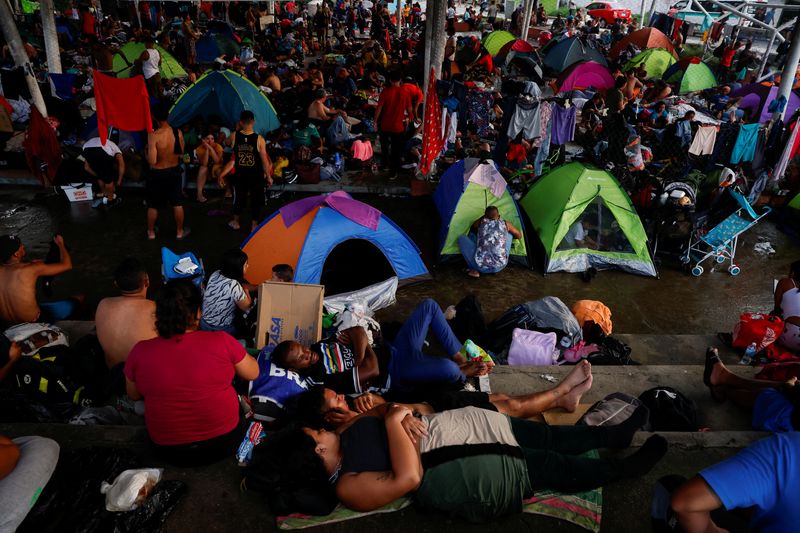By Daniel Becerril and Lizbeth Diaz
TAPACHULA, Mexico (Reuters) - A caravan of thousands of migrants traveling through Mexico with the hope of reaching the U.S. had shrunk to about half its original size on Thursday as many migrants grapple with their prospects following former U.S. President Donald Trump's victory in Tuesday's election.
Trump clinched the presidential election after a campaign that promised large-scale deportations of undocumented migrants and a return to fast-tracked deportations to Mexico.
An official from Mexico's National Migration Institute told Reuters the caravan had dwindled to less than 1,600 people, down from 3,000 when it set out from the southern city of Tapachula on Tuesday.
Just over 100 people asked for help from authorities to return to Tapachula, the official said. It was unclear where the rest of the migrants who left the caravan were headed.
After hearing that Trump had won, many of those in the caravan felt less hopeful about their chance at a new life in the United States.
"I had hoped (Kamala Harris) would win, but that didn't happen," said Valerie Andrade, a Venezuelan migrant traveling from Chiapas to Oaxaca in southern Mexico.
Andrade, along with her husband, and like over 7 million other Venezuelans, left her crisis-ridden country seeking better prospects.
Trump's proposed immigration policies also include ending birthright citizenship for children of undocumented immigrants.
During his previous administration, between 2017 and 2021 Trump put in place policies that left hundreds of thousands of migrants stranded in camps along the Mexican border, reshaping U.S. immigration politics.
A spokesperson for Chiapas state security told Reuters that while the migrant caravan continues north, some families are choosing to turn back to Tapachula, near the Guatemalan border.
But for many the journey northward persists.
Venezuelan migrant Jeilimar, who requested that her last name be withheld for her safety, remains hopeful her appointment to seek asylum via the U.S. Customs and Border Protection app, CBP One, will come through before Trump assumes office in January.
"With God's favor, I'll get that appointment," she said, as she traveled with her 6-year-old daughter, intent on reaching the U.S.

Human rights activists say migrants will continue to arrive to the U.S. southern border.
"People will seek new paths; it'll be more dangerous, but it won't stop them," said Heyman Vázquez, a Catholic priest and pro-migrant activist in Chiapas.
